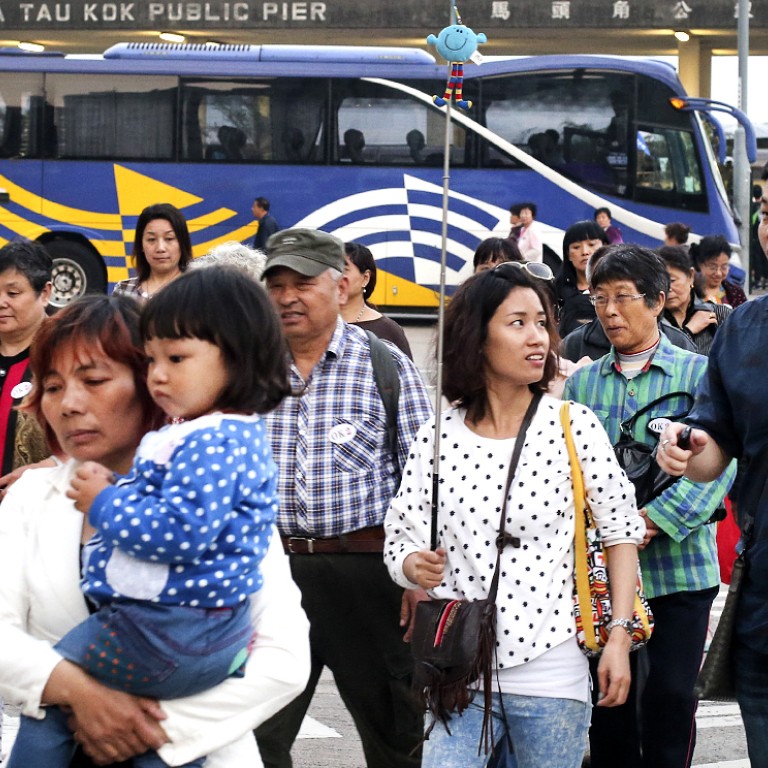
Mainland tourists’ satisfaction with Hong Kong hits four-year record, study finds
Study shows tourists, including much-maligned mainlanders, are enjoying trips to city more
While their presence has attracted the ire of some Hongkongers, mainland visitors enjoyed their trips to Hong Kong last year more than in the year before, a new study shows.
And they were not alone, according to Polytechnic University's annual tourist satisfaction index: visitors from around the world were happier than ever before, with those from Australia and New Zealand enjoying their holidays most.
Researchers questioned tourists from the mainland, the Americas, Australasia, Europe, Southeast Asia, Taiwan, Japan and Korea and asked questions on their experiences in six areas: attractions, transport, immigration, hotels, retail and dining.
Each area was given a score, with an overall satisfaction index calculated on a scale of 0-100.
At 75.96, the satisfaction index for all visitors was up 0.89 points on 2012 to the highest ever recorded in the study, which began in 2009. For mainland tourists, the index increased 1.89 points year on year to 73.97, second only to the 74.32 recorded in 2009.
Mainlanders were most satisfied with the city's transport network followed by attractions and retail, with hotels rated last. Overall, visitors rated attractions highest ahead of transport, which topped the 2012 ratings.
But South Korean and Japanese visitors were less happy. Their satisfaction levels dropped in every area except immigration, and overall their satisfaction index slipped to 67.59. They were happiest with hotels and least happy with shops.
The differences in opinion could be explained by the varied expectations and preferences of travellers from a range of countries, said Professor Haiyan Song of the university's School of Hotel and Tourism Management.
Japanese and Korean tourists were used to good transport links and high-end shops and would expect the same in Hong Kong, he said. The language barrier could also be a problem. Mainlanders, meanwhile, were likely to stay in cheap hotels and spend most of their money in shops.
The number of tourists from the mainland has increased exponentially in recent years, alarming many Hongkongers who see their behaviour as uncouth and complain that they hog resources and overwhelm the city. Anger has spilled over this year, with several protests held in tourist hotspots.
Government predictions that visitor numbers could hit 70 million in three years and 100 million in a decade, from 54 million last year, have prompted calls for limits on mainland visits.
Song would not speculate on whether a limit on visitor numbers would affect satisfaction.
But one thing that would have an impact, according to dean of tourism Professor Kaye Chon, was Occupy Central's plan to block streets in the heart of the city to fight for democracy.
"It's about image," he said, adding that any negative perception projected in the media would have an impact on tourists' attitudes to the city.

